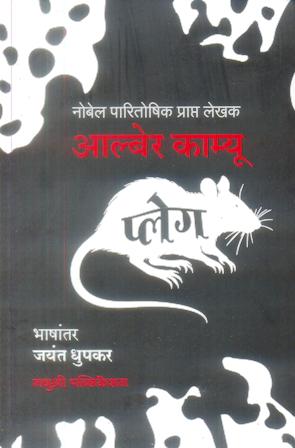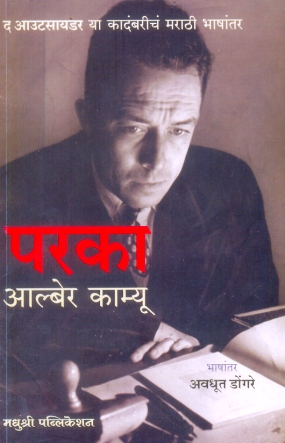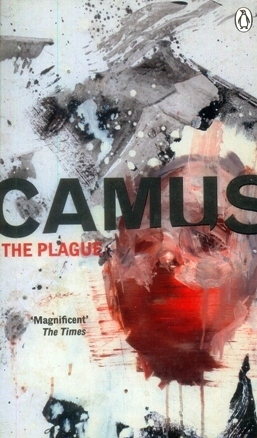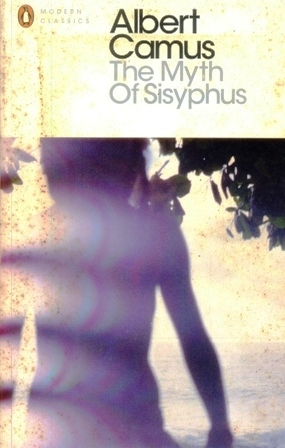-
Plague (प्लेग)
आजाराची साथ ही युद्धासारखी खवीस नाही. अशा परिस्थितीत चांगलं म्हणजे काय ? दैव म्हणजे काय ? मानव कुणाला म्हणायचं ? जेव्हा मृत्यू अनपेक्षित असतो तेव्हा त्याला सामोरं जाणं म्हणजे का वीरगती ? मृत्यूची वाट पाहणं म्हणजे का वीरगती? मृत्यूची वाट पाहणं हा विचार करत राहाणं, किंवा मृत्युमुखी पडणाऱ्या कुणाला मदत करणं, ही वीरगति ? मृत्यू हा अटळ आहे. पण जेव्हा सगळ्यांचं जीवनच धोक्यात आहे तेव्हा ह्या अटळपणाचं काय करायचं ? साथीच्या काळात नैसर्गिक मृत्यू येणं म्हणजे काय? आपण आज वाचलो ह्याची बढाई मारायची की ती आपल्याला काही करायची संधी मिळाली आहे असं मानायचं आणि काही करायचं ? ज्या साथीनं मानवी जीवनालाच धोक्यात टाकलंय ती साथच मानवी निष्काळजीपणाने येत असेल तर? म्हणजे ती कधी परत येईल ते सांगता येणार नाही. मग काय करायचं ? मानवाचे मानवाशी संबंध, मानवाचे देवाबरोबरचे संबंध, मानवाचे स्वतःबरोबरचे संबंध ! मृत्यू अटळ आहे हे एक सार्वत्रिक सत्य आहे. आणि ते तितकंच कठोर, आपल्या समोर उभं ठाकलेलं आहे. ते अदृश्य नाही. ते अटळ नाही. आपण अगोदरच मेलो नाही ह्याबद्दल हर्षोल्हास मानायचा की आपल्याला मिळालेल्या अतिरिक्त वेळेचा सदुपयोग करायचा. हा काम्यूचा संदेश अत्यत सोप्या शब्दात, सर्वांना समजेल इतक्या सोप्या पद्धतीने सांगण्याचा काम्यूची हातखंडा कादंबरी, मराठीत थेट फ्रेंचमधून.
-
Paraka (परका)
फ्रेंचांची वसाहत असणारा १९३०-४०च्या दरम्यानचा उत्तर आफ्रिकेतला अल्जीरिया देश. त्याची राजधानी अल्जीअर्स या अल्जीअर्समध्ये राहणाऱ्या मेर्सोच्या आईचं निधन होतं. मेर्सो तिच्या दफनविधीला उपस्थित राहतो. नंतर मेर्सोच्या आयुष्यात कमी- अधिक व्याप्तीच्या अनेक घटना घडत राहतात. काही घटनांना तो नुसता साक्षी असतो, तर काही घटनांमध्ये त्याचा प्रत्यक्ष सहभाग असतो. दरम्यान, ऊन, आजूबाजूचे आवाज, माणसं, गाड्या हे सगळं त्याला जाणवत राहतं. मग समुद्रकिनारी त्याच्या हातून खून होतो. त्याच्या विरोधात खटला उभा राहतो. हे सगळं कसं होत जातं? खून का होतो? खटल्यात काय होतं? या सगळ्याची गोष्ट खुद्द मेर्सोच्या तोंडून सांगणारी 'परका' ही आल्बेर काम्यू यांची कादंबरी फ्रेंच भाषेत 'लेत्रांजे' म्हणून १९४२ साली प्रसिद्ध झाली. इंग्रजीत 'द आउटसायडर' म्हणून तिचं भाषांतर झालं. १९५७ साली साहित्यासाठी नोबेल पुरस्कार मिळालेल्या आल्बेर काम्यू यांची ही कादंबरी वेळोवेळी कौतुकाचा, टीकेचा, चिकित्सेचा विषय होत राहिली आहे. तिच्या प्रकाशनाला ऐंशी वर्षं झाली असली, तरी आजसुद्धा ही कादंबरी वेगवेगळ्या अर्थांना वाव देणारी ठरावी.
-
The Plague
The Plague by Albert Camus is an extraordinary odyssey into the darkness and absurdity of human existence. 'On the morning of April 16, Dr Rieux emerged from his consulting-room and came across a dead rat in the middle of the landing.' It starts with the rats. Vomiting blood, they die in their hundreds, then in their thousands. When the rats are all gone, the citizens begin to fall sick. Like the rats, they too die in ever greater numbers. The authorities quarantine the town. Cut off, the terrified townspeople must face this horror alone. Some resign themselves to death or the whims of fate. Others seek someone to blame or dream of revenge. One is determined to escape. But a few, like stoic Dr Rieux, stand together to fight the terror. A monstrous evil has entered their lives but they will never surrender to it. They will resist the plague. 'A matchless fable of fear, courage and cowardice' Independent Albert Camus was born in Algeria in 1913. He studied philosophy in Algiers and then worked in Paris as a journalist. He was one of the intellectual leaders of the Resistance movement and, after the War, established his international reputation as a writer. His books include The Plague, The Just and The Fall, and he won the Nobel Prize for Literature in 1957. Camus was killed in a road accident in 1960.
-
The Myth of Sisyphus
In this profound and moving philosophical statement, Camus poses the fundamental question: Is life worth living? If human existence holds no significance, what can keep us from suicide? As Camus argues, if there is no God to give meaning to our lives, humans must take on that purpose themselves. This is our 'absurd' task, like Sisyphus forever rolling his rock up a hill, as the inevitability of death constantly overshadows us. Written during the bleakest days of the Second World War, The Myth of Sisyphus argues for an acceptance of reality that encompasses revolt, passion and, above all, liberty. This volume contains several other essays, including lyrical evocations of the sunlit cities of Algiers and Oran, the settings of his great novels The Outsider and The Plague . Albert Camus is the author of a number of best-selling and highly influential works, all of which are published by Penguin. They include The Fall , The Outsider and The First Man . He is remembered as one of the few writers to have shaped the intellectual climate of post-war France, but beyond that, his fame has been international.




